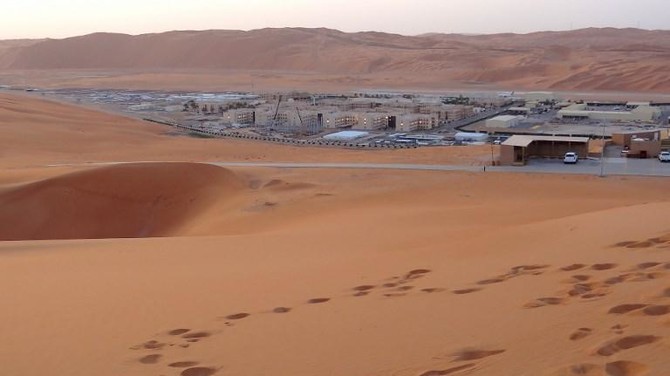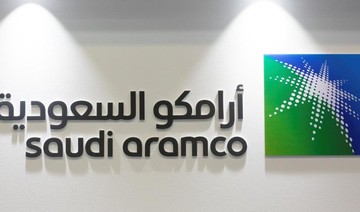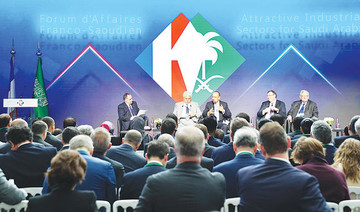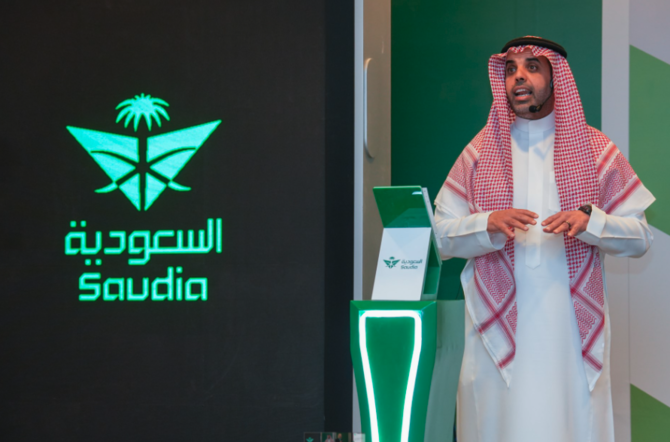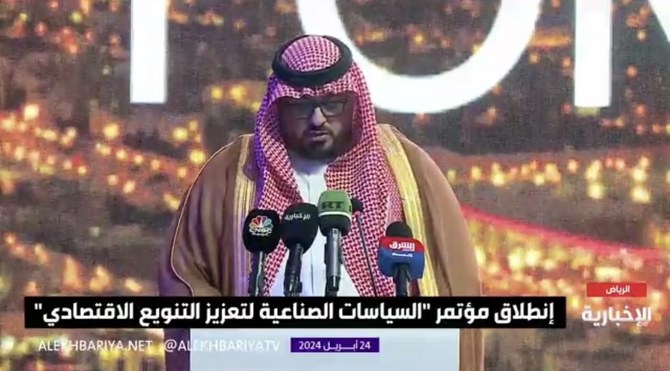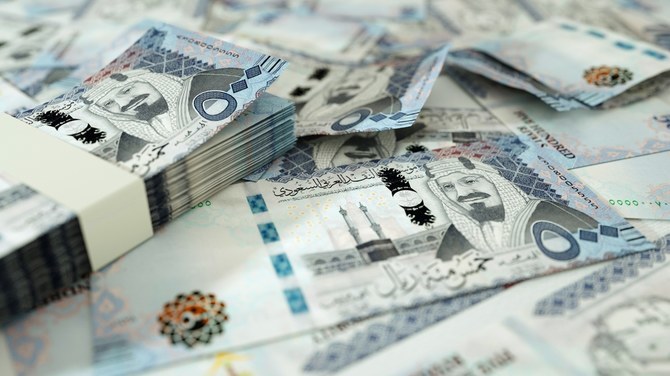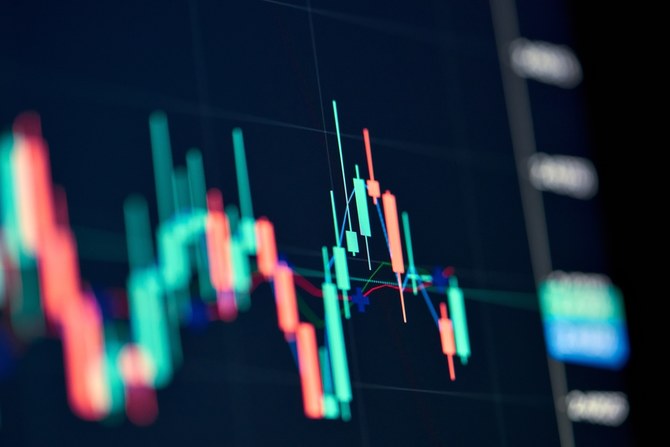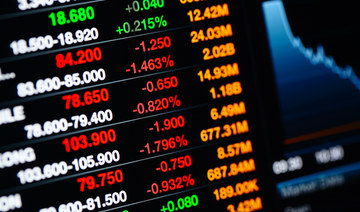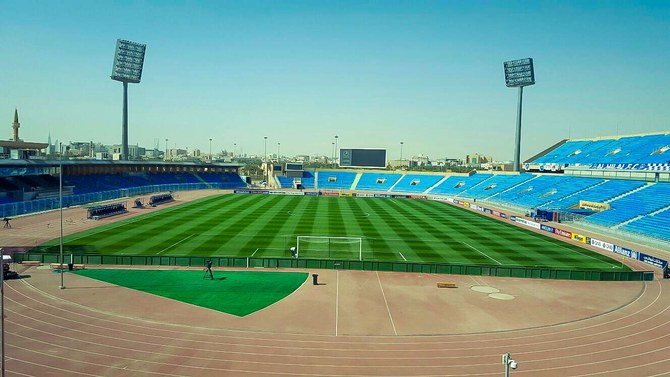DUBAI: The revelations by Bloomberg of hitherto confidential details of the financial status of Saudi Aramco confirm a lot of what we thought we knew about the world’s biggest oil company. But they also leave unanswered many of the questions that need to be resolved before it can progress to the biggest initial public offering (IPO) in history.
The figures were described by Aramco as “inaccurate,” but most energy and financial experts credit them as giving a reliable snapshot of the financial health of the company at the end of June last year.
Some relatively minor items may not be the same when Aramco finally signs off numbers to appear in the IPO prospectus, but for now the Bloomberg figures throw more light on Aramco’s financial status than at any time since it was nationalized by the Saudi government nearly four decades ago.
They figures show the biggest, most profitable and most valuable oil company in the world, throwing off cash at an incredible rate and acting as the driving force for the Saudi economy.
The world knew that Aramco was big, but the revelation of half-year profits of $33.8 billion — bigger than Apple by some way, and bigger than its five nearest oil rivals combined — added substance.
Ellen Wald, author of the recent history of the company, “Saudi Inc.,” and strategist at the Arabia Foundation think tank, told Arab News: “It is no surprise that Bloomberg is now calling Aramco the world’s most profitable company. It has been known for some time that Aramco is hugely profitable and has basically no debt.
“The company was able to achieve this through independence from the Saudi government, being exceptionally technically competent, and by developing a strategic vision of long-term global expansion,” she said.

Other details from the financials were equally impressive. Cash flow amounted to $52 billion, by Bloomberg calculations from the figures, capital expenditure was nearly $15 billion, dividends totaled $13 billion. These were paid wholly to the Saudi government, which also received $18.5 billion in royalties and $39.9 billion in taxes.
The financial performance of a year ago was even more startling given that the oil price averaged $53 a barrel in that period, compared to its current level of more than $70.
So surely such a financial giant would easily be valued at the top end of market estimates, even at the $2 trillion level set when the IPO was first mooted two years ago?
But on this subject — which is the most pressing for the advisers looking to sign off on the IPO prospectus — Bloomberg and other observers were less bullish. Bloomberg number crunchers assessed cash flow and outflows in the form of royalties and tax, and weighed likely dividend policy, and came up with a new valuation of $1.2 trillion.
The Financial Times plugged the Bloomberg data into its own computer model and concluded that
Aramco was worth $1.1 trillion with oil prices at the long-term level of $63 which some analysts predict, and only hitting $1.5 trillion if crude rose to $93. “Saud Aramco’s $2 trillion valuation looks to be a tough target,” the FT concluded.
However, other experts — using different valuation criteria and taking into account possible further adjustments by Saudi policymakers — were not so quick to dismiss the
$2 trillion valuation.
Wald said: “That (the $2 trillion target) is up to Aramco and the band doing the valuation. I would add that rising oil prices certainly would help, along with increased sales of refined products and petrochemicals, which Aramco is pursuing.”
Others were more bullish. Jean-Francois Seznec, Washington DC-based expert in the finance of the Middle East, compared Bloomberg’s revelations with his own estimates of Aramco profitability. “The main figure in my view was the net profit after tax of $33.8 billion, which will turn out rather larger now as oil prices have gone up. My estimate of $70 billion profit per year on an ongoing basis is actually conservative.
“Since I believe the multiple (the factor that decides the relationship between profits and capitalization) for the company to be similar to the average of the multiples for the main independent oil companies — about 24 times earnings — I think the $2 trillion valuation is indeed feasible,” he said.
But even on Seznec’s analysis, Aramco only gets to a shade below $1.7 trillion. Still other industry experts think Saudi policymakers have some ammunition to get it even higher.
David Hodson, Dubai-based expert in energy finance and managing director of BluePearl Management consultants, said: “There is always a lot of positioning around an IPO. With one this big and important, there are so many more moving parts. In particular, final valuation can be affected by the level of dividend Aramco will pay to investors, and the amount of recoverable oil they have in the Kingdom.”
Hodson said that the level of distributable cash for dividends could be positively affected by changes to the royalty or tax regime at Aramco. The tax rate was cut from 85 percent to 50 percent last year. The current royalties structure — revealed by Bloomberg — gives more to the government the higher the oil price goes, and this too could be adjusted.
Until it's all in the public domain, it's virtually impossible to put an upper limit on the valuation.
David Hodson
BluePeral Management
Aramco’s total reserves could also affect the valuation. They have been assessed by Dallas-based petroleum experts DeGolyer & MacNaughton, and are waiting to be revealed in the IPO prospectus — unless Bloomberg reveals them first.
Anything significantly above the reserves status quo of 260 billion barrels — which has held for the past decade and which appears to have been the basis for the original $2 trillion valuation — would have a material effect on the value of the IPO.
“So there are still big things they (Saudi policymakers) can do to affect the final IPO valuation. Until it’s all in the public domain, it’s virtually impossible to put an upper limit on it. Depending on your assumptions, I think it could eventually be in a range between $1.3 trillion and $2.3 trillion,” Hodson said.


